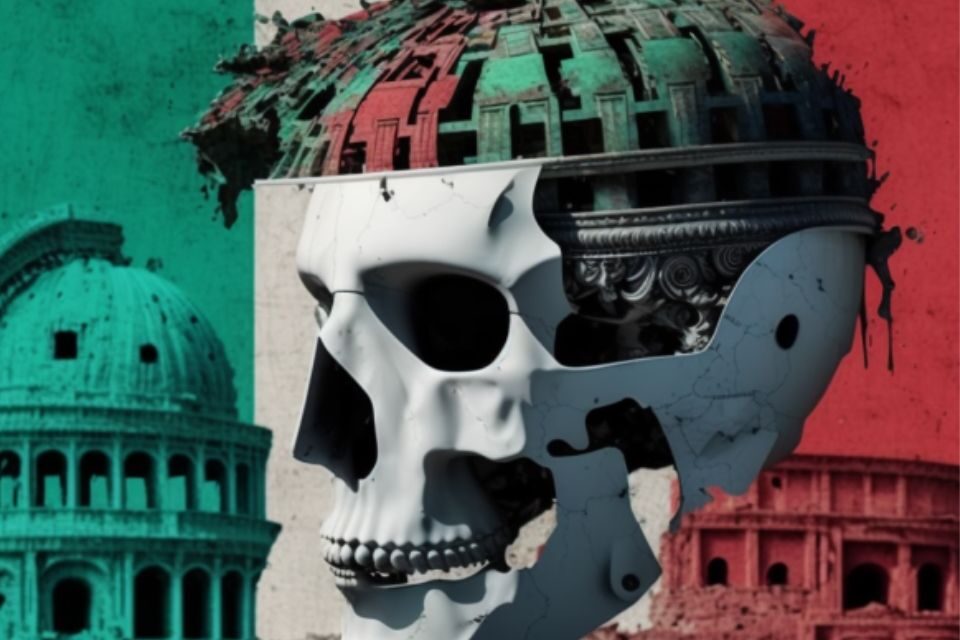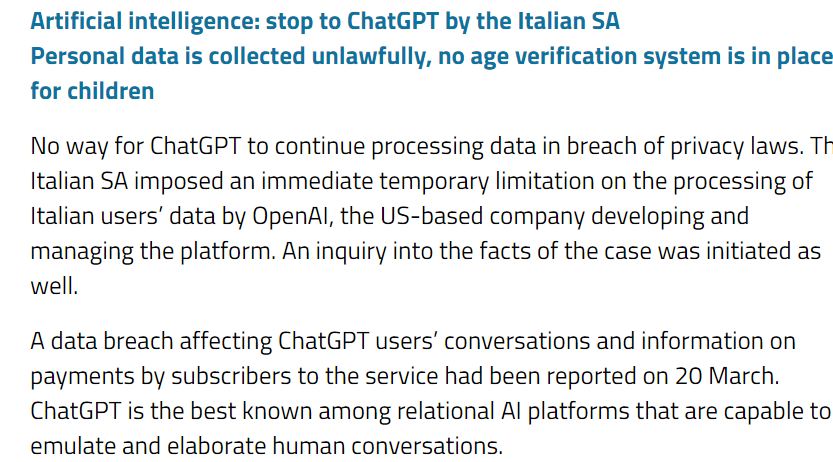Italy bans ChatGPT over Privacy Violations, prompts calls to suspend AI Tool

The Italian privacy regulator has ordered a ban on ChatGPT, a popular AI tool developed by OpenAI, over alleged privacy violations.
The national data protection authority has ordered an immediate block on OpenAI from processing the data of Italian users until the company complies with the EU’s General Data Protection Regulation (GDPR).
Italian Privacy Regulator Orders Temporary Ban on ChatGPT
According to the authority, calls to suspend new releases of ChatGPT and investigate OpenAI over privacy, cybersecurity, and disinformation risks are growing. Consumer advocacy group BEUC has called for EU and national authorities, including data protection watchdogs, to investigate the tool.

The Italian authority also cited a data breach suffered by ChatGPT last week, which exposed users’ conversations and payment information.
Additionally, it claims that OpenAI lacks a legal basis justifying the mass collection and storage of personal data to “train” the algorithms of ChatGPT.
OpenAI Given 20 Days to Comply with EU Privacy Rules or Face Penalty
OpenAI, which does not have an office in the EU, has been given 20 days to communicate how it plans on bringing ChatGPT into compliance with EU privacy rules or face a penalty of up to 4% of its global revenue.
Tech Leaders Call for Pause on Training Powerful AI Systems
Meanwhile, Elon Musk and dozens of AI experts have called for a pause on training the most powerful AI systems for at least six months, citing “profound risks to society and humanity.”
The letter was published by the Future of Life Institute, a nonprofit backed by Musk. It comes just two weeks after OpenAI announced GPT-4, an even more powerful version of the technology behind ChatGPT.
Concerns Over AI’s Potential for Biased Responses, Misinformation, and Privacy
The wave of attention around ChatGPT late last year helped renew an arms race among tech companies to develop and deploy similar AI tools in their products.
However, concerns over AI’s potential for biased responses, the ability to spread misinformation, and the impact on consumer privacy have sparked questions around how AI can upend professions, enable students to cheat, and shift our relationship with technology.








